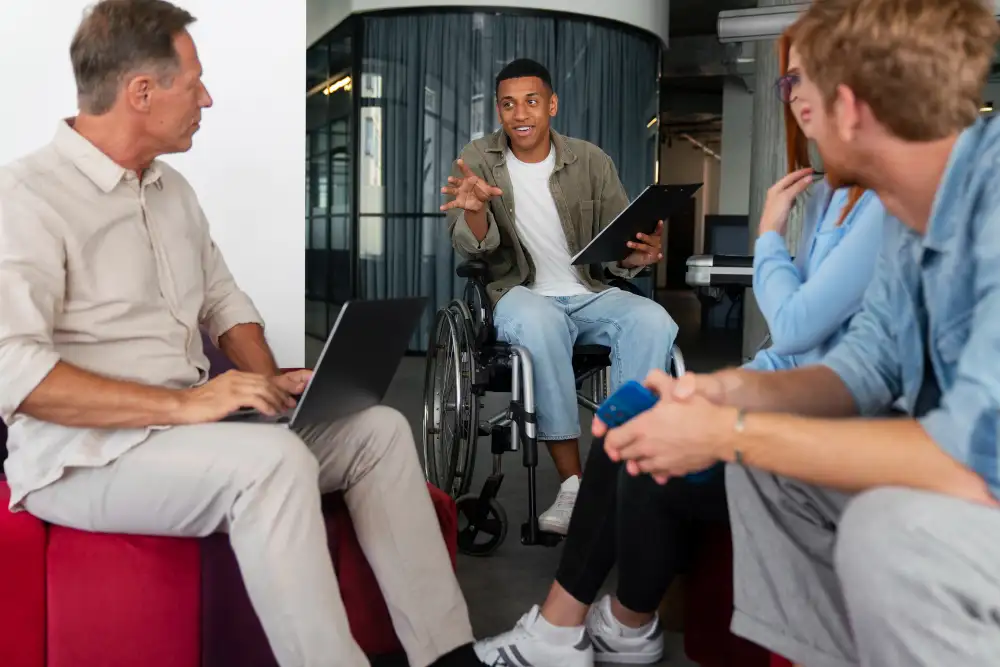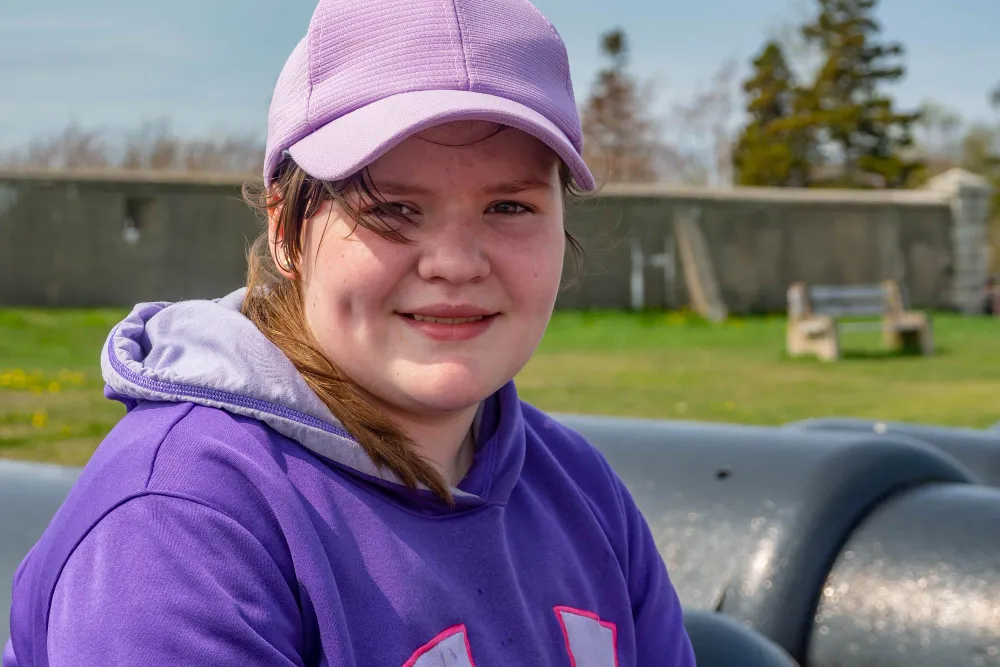Discover how Improved Daily Living NDIS supports can make everyday life easier and more independent.

The NDIS provides support for people with disabilities, fostering greater independence and community participation. A key aspect of this scheme lies in its capacity-building focus, empowering individuals to develop skills and confidence.
This is where "Improved Daily Living" steps in as a vital support category within the NDIS framework. It encompasses a range of services and funding designed to enhance your ability to learn new skills and manage everyday tasks, ultimately improving your quality of life.
The NDIS categorizes its funding supports, ensuring clarity and structure. In simple terms, while the "Core Supports budget" category covers essential daily living needs like assistance with personal care, the "Improved Daily Living" category takes a more proactive approach.
This category, sometimes referred to as the “Capacity Building Supports budget: Improved Daily Living," focuses on building your capacity for greater independence in the long run. This means it funds supports that equip you with the skills and tools to manage daily tasks more autonomously.
Essentially, it's all about empowering you to live your life to the fullest. It's about moving beyond simply getting by to actively participating in and enjoying life.

Imagine being able to cook a meal, manage your finances, or get dressed independently—these everyday activities contribute significantly to a person's sense of self-reliance and well-being. For individuals with disabilities, these tasks may present challenges, but that's where NDIS support steps in.
Improved Daily Living funding empowers participants to access therapies like occupational therapy, inclusive of support from an occupational therapist, speech therapy, or even specialized skill development programs. These services are tailored to address individual needs and goals, promoting greater independence in daily life.
By investing in capacity building, the NDIS helps participants and their family members break down barriers, develop essential life skills, and fully engage in their communities. It's about fostering a sense of accomplishment, fostering social connections, and ultimately, enhancing overall well-being.
Related: NDIS Speech Therapy Sydney
Improved Daily Living is not a one-size-fits-all solution. It encompasses various supports designed to address a wide range of needs. Understanding the key components of this category helps you navigate the available options and access appropriate support for your circumstances.
This means funding might cover therapies, assistive technology, training programs, and even support for your family or carers, including short term accommodation. The goal is to create a holistic support system that empowers you to live a more fulfilling and independent life.
Improved Daily Living encompasses a diverse range of support services, ensuring that individuals with varying needs can benefit from the NDIS. Let's break down some key support areas for support people:
Tailoring your Improved Daily Living supports to your specific needs allows you to work towards your goals and live a more independent and fulfilling life.
While the NDIS aims to provide comprehensive support, specific eligibility criteria apply to ensure that funding is allocated appropriately. Understanding these criteria is crucial for accessing the support you require.
Firstly, you must be an NDIS participant, having successfully gone through the eligibility process. Once you have an approved NDIS plan, your eligibility for specific support categories, including Improved Daily Living, will be assessed based on your individual needs and goals.
The NDIS operates on the principle of "reasonable and necessary" supports. This means that the requested funding must be directly related to your disability and aimed at helping you achieve greater independence and community participation.
Related: NDIS Physiotherapy Melbourne
Navigating the NDIS process for the first time might seem daunting, but breaking it down into manageable steps can simplify the experience. The journey starts with understanding your needs and aspirations: what do you envision for a more independent and fulfilling life?
Once you have a clearer picture of your goals, you can begin the process of including Improved Daily Living supports in your NDIS plan management. This involves working collaboratively with your support coordinator or local area coordinator to ensure your request aligns with the NDIS guidelines.
The first step is to gather evidence supporting the need for a thorough assessment of Improved Daily Living supports in your NDIS plan. This might involve reports from therapists, assessments highlighting your needs, or even personal accounts demonstrating how these supports would benefit your daily life.
Next, connect with your Local Area Coordinator (LAC) or Support Coordinator and express your desire to include Improved Daily Living in your plan. They will guide you through the process, explaining the documentation needed and scheduling a plan review meeting to discuss your request.
During your plan review, clearly articulate your goals and how Improved Daily Living supports will empower you to work towards them. Be specific about the services you believe would be beneficial, providing evidence to support your claims. This collaborative approach ensures your plan is tailored to your individual circumstances.
Once you secure funding for Improved Daily Living, selecting the right providers and establishing a collaborative relationship is essential. Your support coordinator can play a crucial role in connecting you with reputable providers who align with your needs and preferences.
Don't hesitate to discuss your goals and aspirations with your chosen providers, ensuring they understand your vision for a more independent and fulfilling life. Building a strong rapport with your support team ensures you receive personalized support and can maximize the benefits of your NDIS plan budget.
Remember, the NDIS journey is a collaborative effort. By working closely with your support network—your support coordinator, providers, and loved ones—you can pave the way for greater independence, especially for individuals with intellectual disabilities, unlocking your full potential.
Related: NDIS Occupational Therapy Melbourne

Occupational Therapy for Daily Routines
With the help of an occupational therapist, a participant learns how to get dressed, take a shower, and prepare simple meals. The therapist uses visual aids and step-by-step instructions to make each task easier to understand and follow.
Speech Therapy for Communication Skills
A young adult attends regular speech therapy to build confidence in talking with others at work and in social settings. The sessions focus on clear speech, listening, and understanding conversations.
Psychology Support for Managing Emotions
A participant works with a psychologist to manage anxiety, feel more in control, and build coping skills for everyday challenges like meeting new people or trying new activities.
Learning to Use Public Transport
A support worker helps someone learn how to travel on buses and trains. They practice reading timetables, tapping on with a travel card, and travelling safely to local shops and appointments.
Cooking and Healthy Eating Skills
A participant joins a weekly cooking group where they learn how to plan meals, shop for food, and cook easy, healthy recipes. This helps build confidence and independence in the kitchen.
Exercise Physiology to Stay Active and Mobile
With guidance from an exercise physiologist, a participant does simple movements to improve balance, strength, and coordination. This makes it easier to move around at home and in the community.
Learning to Manage Money
An occupational therapist teaches a participant how to understand money, make a budget, and safely pay for things when shopping. This builds confidence with everyday spending.
Art Therapy for Self-Expression and Wellbeing
A participant joins art therapy sessions to express feelings through drawing and painting. It’s a safe space to relax, build confidence, and improve emotional wellbeing.
Life Skills for Teenagers
A teenager with autism joins a life skills program that helps with personal care, organising school items, and managing daily routines. The sessions use visual schedules and easy-to-follow steps.
Setting and Reaching Personal Goals
A support coordinator helps a participant set a goal—like finding a part-time job—and breaks it into small, achievable steps. They also connect the participant with services to support each step of the journey.
Improved Daily Living under the NDIS empowers participants to enhance their quality of life through tailored support services from health professionals. By understanding the scope and components of this program, individuals can access vital resources to meet their unique needs effectively. Eligibility criteria play a key role in determining access to these supports. Navigating the process requires collaboration with providers to maximize benefits. Embracing Improved Daily Living within your NDIS plan can lead to meaningful improvements in daily functioning and overall well-being. If you're looking to optimize your NDIS plan with Improved Daily Living supports, reach out to our team for expert guidance today.
What types of activities are considered under Improved Daily Living?
Improved Daily Living includes everyday activities that help you become more independent. This could be learning how to cook, improving your movement with an exercise physiologist, building communication through speech therapy, or joining music or art therapy for creative expression.
Is Improved Daily Living the same as Core Supports?
No. Core Supports help you with everyday needs like personal care or transport. Improved Daily Living is part of the Capacity Building budget and focuses on building skills over time so you can do more on your own.
What professionals can provide services under Improved Daily Living?
You can get support from qualified professionals like occupational therapists, speech pathologists, psychologists, physiotherapists, exercise physiologists, and other allied health providers.
Can Improved Daily Living include assessments?
Yes. Funding in this category can be used for therapy assessments and reports. These are often needed when updating your NDIS plan or showing why ongoing support is important.
Can I use this funding to get help with emotional regulation or behaviour support?
Yes. You can use it for psychology sessions or behaviour support if they help you manage emotions, feel more confident, or learn positive ways to respond in daily life.
Is assistance with daily money management covered?
Yes, if it's part of learning life skills. For example, an occupational therapist can help you learn to budget, understand money, and pay for things safely and independently.
Can my family or carers be involved in Improved Daily Living supports?
Yes. In many cases, therapists or support workers can work with both you and your family or carers to build routines, improve communication, or support shared goals.
Can children or teens access Improved Daily Living supports?
Yes. Kids and teens can get support for early learning, communication, behaviour, social skills, or school preparation through this category.
How do I request Improved Daily Living supports in my plan?
You’ll need evidence from professionals—like therapy reports or assessments—that show how these supports help with your goals. Bring this to your NDIS planning or plan review meeting.
Is support coordination included in Improved Daily Living?
No. Support coordination has its own budget. But your Support Coordinator can help you find and manage Improved Daily Living supports that are right for you.
Can I use this funding to access telehealth or online therapy?
Yes. Many therapy services under Improved Daily Living can be done online, which is helpful if you live far away or prefer to access services from home.
How do I know if a provider is registered for Improved Daily Living?
You can use the NDIS Provider Finder online or ask your Support Coordinator. If you're plan-managed or self-managed, your provider doesn’t need to be NDIS-registered, but they should be qualified and experienced.
Can I switch providers if I’m not happy with my current one?
Yes. You’re free to choose a new provider if you’re not happy. Talk to your Support Coordinator to help find someone who better suits your needs.
Can I get short-term accommodation under Improved Daily Living?
Sometimes, yes. Short-term accommodation may be funded if it helps with skill building or assessments—especially when it's linked to your goals and supported by evidence in your plan.